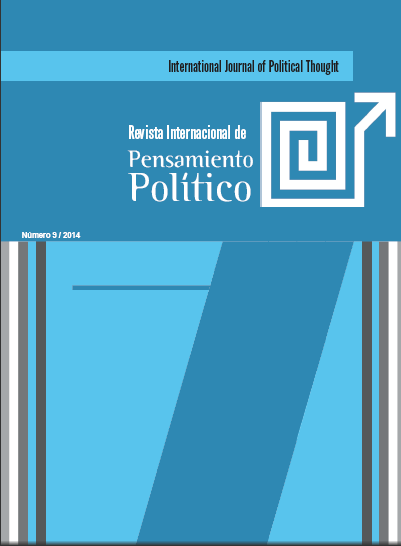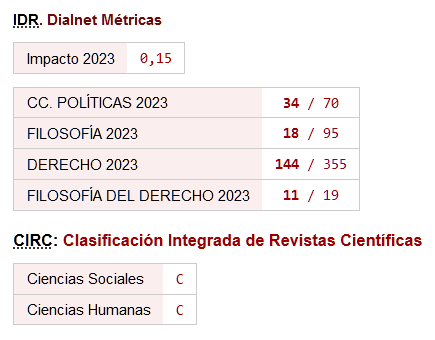LEGALIDAD Y LEGITIMIDAD EN LA CONSTRUCCIÓN DE LA NACIÓN INDIA
Resumen
Este trabajo analiza el proceso de construcción del movimiento nacional indio y la subsiguiente creación en 1947 de un Estado independiente del Imperio británico. En particular, el análisis se centra en los procesos y actores principales, Jawaharlal Nehru y Mohandas Gandhi, que han permitido a la India establecerse como una democracia estable e inclusiva a pesar de su alta heterogeneidad cultural, el trauma de la Partición con Pakistán y la continua inestabilidad regional. Utilizando la teoría contractualista rousseauniana como marco teórico, el artículo utiliza los conceptos de legalidad y legitimidad como base para el análisis.Descargas
Descargas
Publicado
Cómo citar
Número
Sección
Licencia
Política de acceso abierto
Se permite el acceso libre y abierto de cualquier interesado a todos los contenidos de los números de la revista, sin costo alguno, pudiendo imprimir y trasladar todos los artículos, con la única condición de precisar la fuente y la autoría.
La revista: a) no cobra a las autorías costes por el procesamiento de los artículos ni por el envío de los mismos, b) mantiene el copyright para los autores sin restricciones, c) facilita a los autores conservar sus derechos de publicación sin limitaciones.
La Revista Internacional de Pensamiento Político es una obra original del Laboratorio de Ideas y Prácticas Políticas de la Universidad Pablo de Olavide. Todos los artículos incluidos en la Revista son obra original de sus respectivas autorías. Esta Revista se ofrece libremente a la comunidad científica y académica sin coste alguno y libera los contenidos de acuerdo a la licencia "Reconocimiento-NoComercial-CompartirIgual 4.0 CC BY-NC-SA" del proyecto Creative Commons dispuesta en la siguiente url: https://creativecommons.org/licenses/by-nc-sa/4.0/legalcode
Si deseas traducir o compilar alguno de los artículos aquí disponibles, por favor, ponte en contacto













